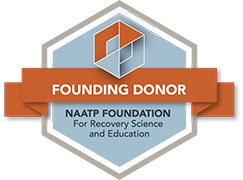Dealing With a Loved One in Addiction
It’s Saturday evening and I’m on the couch with the dog watching something insignificant on TV when the phone rings. A few minutes later I hear “She’s been drinking again and is on her way over.” So, I get up and go to the kitchen to put on a pot of coffee. Maybe this time she’ll be ready for some help. Maybe this time she’s had enough.
Having a loved one who is an alcoholic or an addict is hard. You want so badly to help make them better, to save them. Unfortunately, alcoholism isn’t like any other disease. There is no magic pill that will make your son, daughter, sister or husband stop. So what can you do?
First, it’s important to determine whether your loved one is truly an alcoholic. Does your family history include substance abuse? Does he or she drink before noon or do they tend to drink alone? Are they stashing alcohol or sneaking drinks before or after social events? Do they seem to lose control of how many drinks are being consumed? Are there changes in your loved one’s personality or social activities?
There could also be signs of physical addiction, such as withdrawal. Withdrawal from alcohol or other drugs could lead to nausea, cold sweats, shakes, anxiety, vomiting and in some cases seizure or hallucinations. If your friend or family member is, in fact, an alcoholic and they decide to quit it is very important that you contact a medical professional. Stopping “cold turkey” could lead to withdrawal seizures.
The Right Approach
Before approaching someone about their addiction, try to think about what you are going to say. They might still be in denial about their problem and become defensive or try to justify their use. Instead of being accusatory, try to take an approach that is sympathetic and supportive. I can tell you right now that no alcoholic likes to hear “you need help”. Their response to you trying to force them to get help will likely be using more or shutting you out. Try to explain to them how you feel and how scared you are. Come from a place of concern and love. Be angry at the addiction not the addict.
When you do choose to confront your friend or loved one, try to pick a place where you are both comfortable but also have your privacy. It is important that you are prepared for whatever their response might be. Don’t take it personally if they get angry with you or try to place blame somewhere else. If this is the case, you could try bringing up specific instances where their use has impacted their life, such as loss of a job, marital problems, or even their health.
If they are finally ready, you can start to bring up different options to them. Research AA meetings in your area and offer to bring them to one. You can also offer to help them look in to an IOP (Intensive Out Patient) program, or if they are willing you can bring up inpatient as well. Inpatient facilities are able to offer treatment in a variety of ways, including clinical therapy, relapse prevention groups and an introduction to a twelve step program. The admissions coordinators at High Watch can talk you through the entire process so that you don’t have to feel like you are doing this alone.
Don’t Forget You
It is also important to make sure that you are taking care of yourself during all of this. It is easy for us to get caught up in trying to take care of someone, especially if they are family. But losing sleep and neglecting your own needs won’t be helpful for either of you. You may even want to look into a support group for family or friends of addicts such as Al-Anon, Narc-Anon, or ACOA.
Remember, before you approach someone that you think may have a drug or alcohol issue, try to remember that they are suffering. Remember that addiction is not a problem of willpower or a moral issue. The most important thing is to let them know that you care, and that you are coming from a place of compassion and worry, not anger or judgment. When in doubt, reach out to a professional that can help you through this difficult time.
Meet the Author:
Jenn Worthington, Alumni Relations Coordinator









